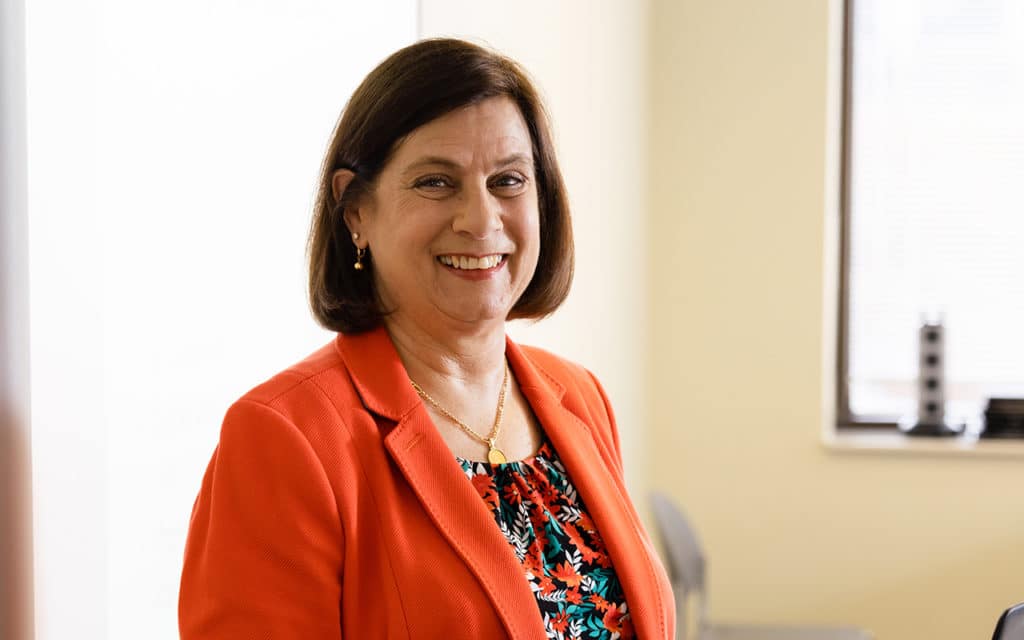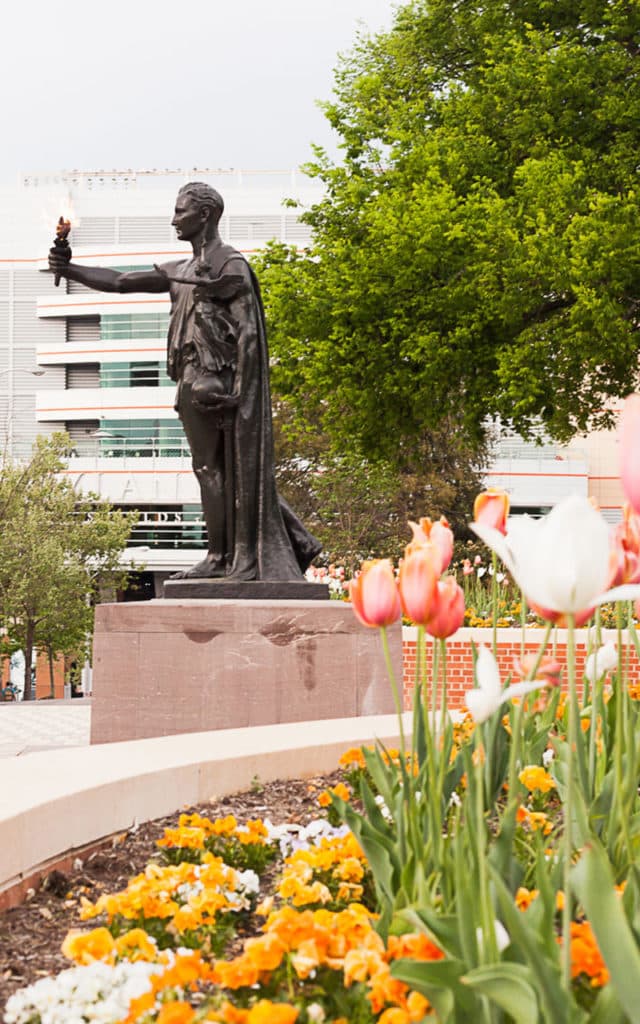Radio show about people, health, & policy
It’s a cold, dreary day in mid-January. The sun has yet to peek through the overcast skies and rise over the Smoky Mountains as “Hello, this is Dr. Carole Myers from the University of Tennessee College of Nursing. Welcome to HealthConnections, the show about people, health, and policy,” is heard on WUOT-FM, UT’s NPR affiliate.
Simplifying Health Information
Every other Tuesday, Myers and her co-host, WUOT News Director Brandon Hollingsworth, translate the nuances of health, health care, and health policy for radio listeners in East Tennessee and beyond. Myers has a talent for discussing complex policies and sensitive topics in a way that resonates with listeners, as evidenced by the awards bestowed on the program. The HealthConnections program has been awarded the Robert Meachem Beyond the Call Award and the Golden Press Award-Documentary/Public Affairs award.
Myers complements her discussions with comments on each topic’s personal implications for listeners and what actions they can take to address a policy or personal problem. Although it isn’t where she started her career, Myers has embraced her role in policy advancement and media engagement, and flourished in connecting with the public.

Nursing Education & Early Career
Myers received her master’s degree in nursing at UT Knoxville in 1981, one of the first graduates of an innovative program that offered students with a bachelor’s degree in a field other than nursing an accelerated path to a Nursing master’s. Shortly after graduation, she and another graduate opened a nurse-managed primary care clinic in rural East Tennessee—at the time, the only clinic in Tennessee owned and managed by nurses.
During this time, Myers was appointed to a county commission task force in Blount County, TN addressing the challenge of the community hospital’s short-term debt after a change in hospital reimbursement by Medicare and some private insurance companies. The issue fueled Myers’s interest in health policies and she moved to the private business sector. She worked for two Fortune 500 companies and owned a benefits consulting firm examining health care costs and delivery in the United States. Twenty years later, Myers returned to UT to pursue a PhD in nursing with the goal of working in the public sector.
Public Health Policy Interest
Myers’s early academic career, which included a joint faculty appointment in nursing and public health as well as a health policy fellowship in UT’s Howard H. Baker Jr. School for Public Policy, led her to the field of public health systems and services research. She and a UT colleague first looked at the relationship between state health department structure and programming and health outcomes. This work was instrumental in launching Myers’s current area of research: examining and advancing public policy and programs to improve population health outcomes and reduce disparities. She is particularly interested in how public health, access to primary care services, and better utilization of nurses influence the aim of better health for all people—particularly those who currently have the worst outcomes—as well as national and state health reform.
According to Myers, research is a tool for advancing policies and programs that improve health and reduce disparities.

“As an engaged scholar, everything I do begins and ends with my work in and with the community”
— Carole Myers, PhD, RN, FAAN
Currently Tennessee is one of the 12 most restricted states in the nation for advanced practice nursing, a category that includes nurse practitioners, nurse anesthetists, nurse midwives, and clinical nurse specialists. These restrictions have important implications, given that many areas of the state do not have adequate access to primary care and mental health services. The removal of restrictions—a move that is supported by over 50 years of positive research findings—would improve access to needed health care services, foster competition, and improve choice. Myers, together with a physician researcher and a health care economist, recently studied the macroeconomic benefits of removing these practice restrictions. The results of their study demonstrate additional benefits to the state and help make a case for removing practice restrictions as an economic development issue.
Around five years ago, Myers decided that media engagement would boost her policy and advocacy work. Since then, she has been appointed a Senior Fellow for Health Policy and Media Engagement at the George Washington University School of Nursing, launched HealthConnections, initiated a regular policy column for the American Journal of Nursing, published national opinion columns, and became an avid user of Twitter. Myers is frequently called upon to address the benefits of nurse media engagement and lead media training.
Myers’s policy and media expertise has enabled her to collaborate with researchers within the UT College of Nursing and beyond, reflecting the college’s commitment to addressing policy needs in all aspects of health and health care and Myers’ policy expertise.
“I am able to work with some really exciting colleagues in their areas of interest,” Myers said. “I can facilitate their understanding about how policy will advance their work, so I feel very fortunate.”
Myers believes that the most rewarding part about her research is making connections with people and seeing the light bulb go off when they see an issue through a different lens.
Her advice to new researchers interested in policy is to learn to navigate the space of traditional research and engaged scholarship.
“You’re not automatically going to be embraced as the more traditional researchers,” Myers said. “You have to be able to make a strong case for your value and then you must perform—results matter.”
Results do matter, but for Myers those results are much more than the number of published articles and podium presentations—they include connecting the academic university with the community and delivering messages that resonate with them. “Our profession and the public we serve are best served when we have an outward perspective and focus on the public rather than an inward perspective about what nurses need.”
Myers’s parting thought is applicable to any field: “Have a passion for what you do. It will sustain and motivate you during the tough times. Each opportunity is precious.”

Learn More
Would you like more information on the Doctor of Philosophy (PhD) in Nursing program? Take the first step by completing the Request Information form on the program page.